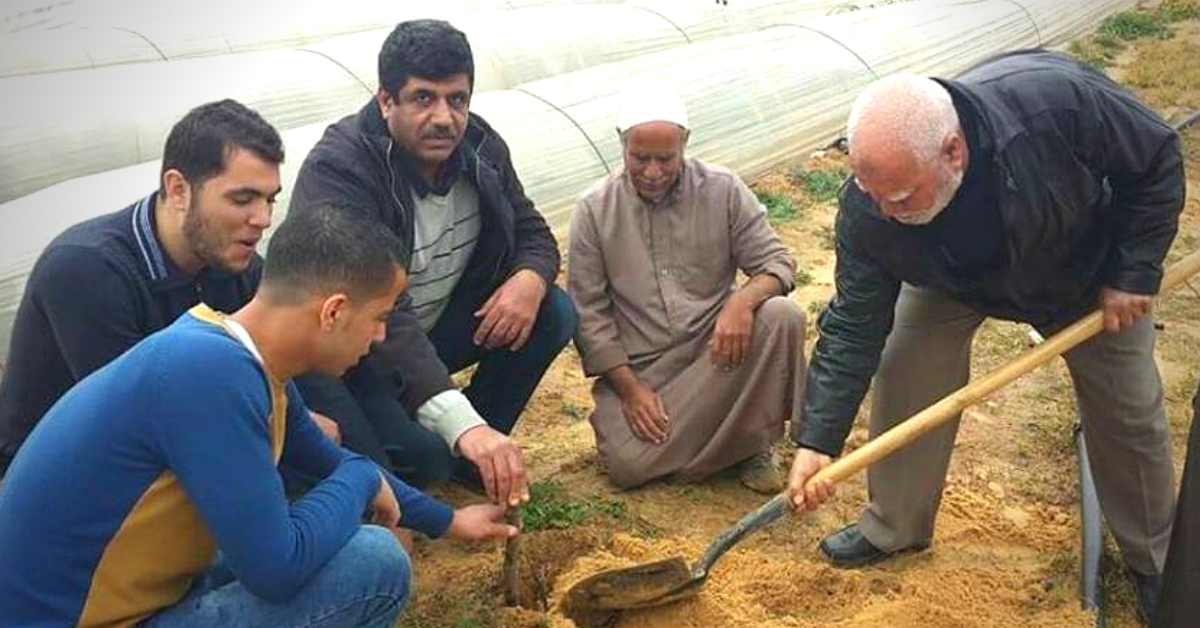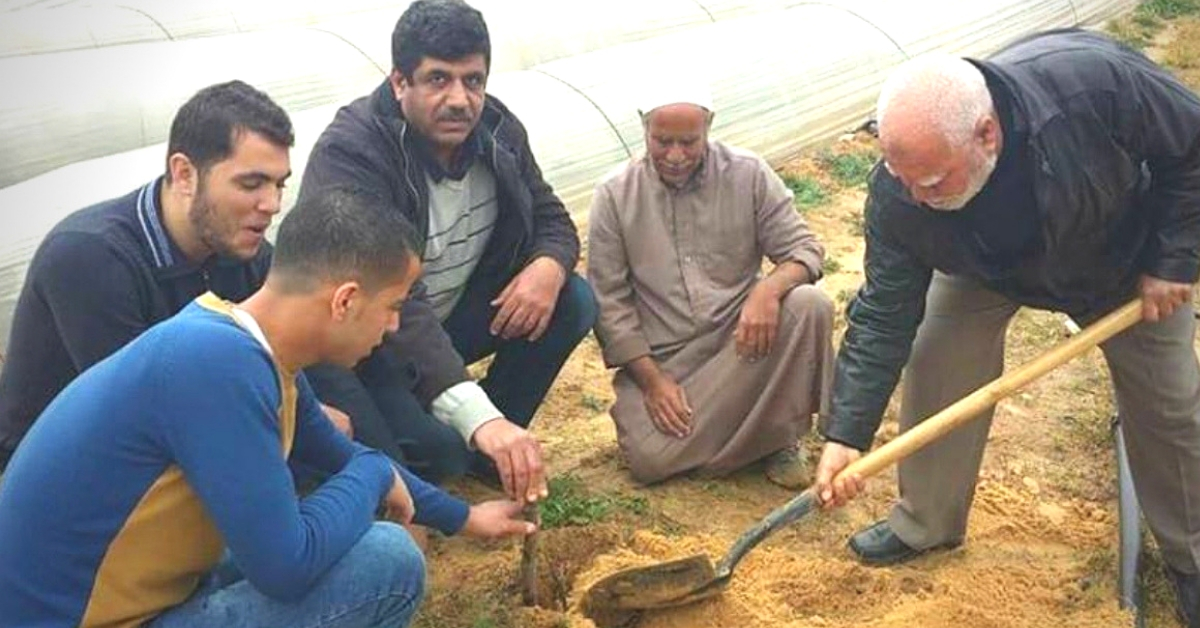This article has been sponsored by the Jamnalal Bajaj Foundation
32 years ago, on 9 December 1987, during an infamous uprising in Palestine, a Palestinian found himself in a difficult position.
The dissent bubbling throughout the then 20-year-long period of Israeli military occupation had suddenly erupted in a very violent way. This was the First Palestinian Intifada (uprising) against the Israeli occupation of West Bank and Gaza.
But this Palestinian, Dr Ziad Medoukh could not pour himself into the violent outbursts. Recollecting those days, he said to The Better India, “I saw my friends throw stones at Israeli soldiers as a mode of protest against their occupation. But, I couldn’t be a part of it. We all had had enough, but for me, it was never a violent path, as I preferred patience and a non-violent struggle, for instance, boycotting Israeli products to paralyse their monetary means, etc.”
It was at that time that Ziad found solace in the teachings of Mahatma Gandhi.

“I started to read and take an interest in Gandhian values, and to participate with young people to lead volunteering. Later, when I became a teacher, I started spreading these principles in the civil society,” he shared.
Since then, he has been sensitising and leading people to embrace a non-violent way of living, even amidst the raging violence. He has been rallying Palestinians to produce, use and market local products, thus manifesting the development of a nonviolent economy in the Gaza strip.
From villages to refugee camps, his efforts also involve initiating organic farming techniques in the communities and promoting handicrafts to enable positive change from within the communities.
Owing to these efforts, in 2017, he was honoured with the Jamnalal Bajaj Award for Promoting Gandhian Values Outside India.
Also Read: From Saving Children to Establishing Democracy, 3 Global Gandhians Who Inspire Us!
Ziad is now a Palestinian professor and Director of the French Department at Al-Aqsa University in Gaza, Palestine, committed to the principles of democracy, freedom and human rights.
Owing to his efforts to establish a more non-violent environment in these areas, he became the first Palestinian to be recognized as the Knight of the Order of Academic Palms of the French Republic in 2011.
In the midst of traumatic situations ensuing due to the blockade, attacks, etc. he provides the young generation hope for a better future.
For this, Dr Ziad works with the youth in Gaza, on various initiatives, presenting their work as a testimony of non-violence.
“It is very important to sensitise young people, particularly in the context of Gaza and Palestine, a situation of total occupation and despair. I have to be by their side to give them hope and cheer them up. So, together, we try to do volunteer activities in various families and individuals, through various relief measures, voluntary field work to help communities, non-violent debates, etc.” he said.
To further this, he, along with his friends, set up the Peace Center in 2006. Through its actions following Gandhian principles of the nonviolent economy, they have been able to show the importance of education as a form of non-violent resistance in Palestine.
In 2014, following the last Israeli military offensive against Gaza, Dr Ziad had set up a psychological support cell to help traumatised children deal with its consequences.
Between 2014 and 2017, this support unit has organised more than 100 sessions in the kindergartens, schools and shelters for children across Gaza, with more than 4,000 children benefitting from it.
He added, that this indeed was one of his greatest achievements, especially as he saw his young volunteers actively participate in it and create substantial change.
“I had the opportunity to train and help a generation that believes in these principles, and who continue to believe in non-violence despite the violence around them. A concrete example of the commitment of these young people is the work of psychological support conducted for more than four years for the children of Gaza,” he said.
“Because at the end of the day, no solution has ever been reached through violence. It has always been the language of non-violence that reached out to the hearts of people to heal, not hurt,” he concluded.
Find more details about the Jamnalal Bajaj Awards here.
(Edited by Vinayak Hegde)
Like this story? Or have something to share?
Write to us: contact@thebetterindia.com.
Connect with us on Facebook and Twitter.
If you found our stories insightful, informative, or even just enjoyable, we invite you to consider making a voluntary payment to support the work we do at The Better India. Your contribution helps us continue producing quality content that educates, inspires, and drives positive change.
Choose one of the payment options below for your contribution-
By paying for the stories you value, you directly contribute to sustaining our efforts focused on making a difference in the world. Together, let's ensure that impactful stories continue to be told and shared, enriching lives and communities alike.
Thank you for your support. Here are some frequently asked questions you might find helpful to know why you are contributing?

